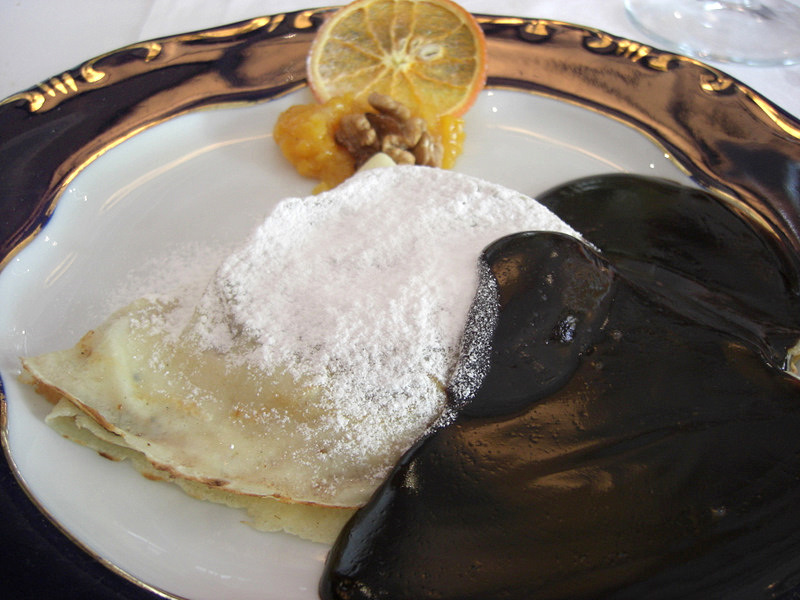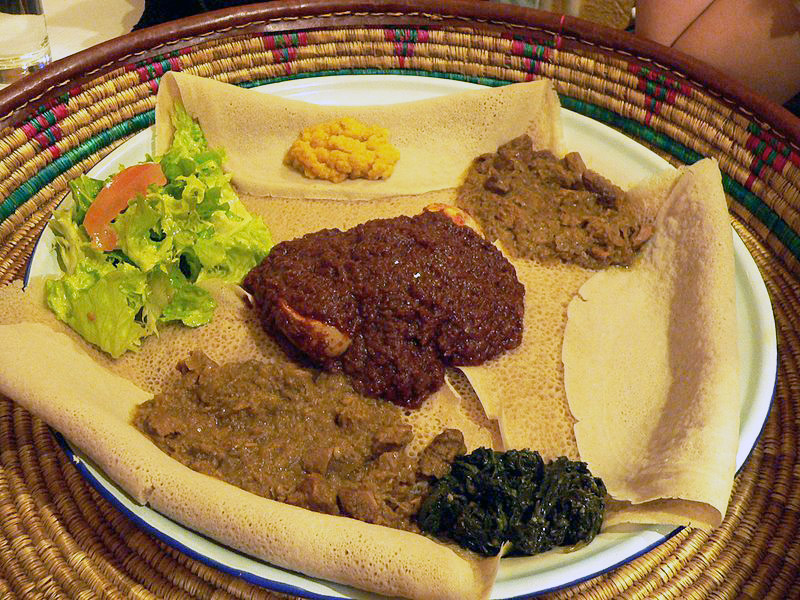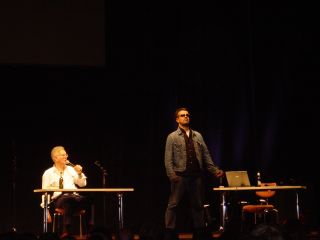|
Flädle
Flädle is a southern German garnish and soup ingredient from the region of Baden-Württemberg consisting of savory pancakes, cut into ribbons.Flädle , Suppen und Eintöpfe ''schmeck-den-sueden.de'', Retrieved March 23, 2017 ''Flädle'' are made by first making plain crepe-style pancakes, then tightly rolling them up and slicing them into ribbons. They are then usually served in a clear or beef broth in a dish of ''Flädlesuppe''. In other parts of Germany, the dish is known as ''Eierkuchensuppe'', derived from the regional name ''Eierkuchen'' (lit. "egg cakes") for pancakes. Austria [...More Info...] [...Related Items...] OR: [Wikipedia] [Google] [Baidu] |
Swabian Cuisine
Swabian cuisine is native to Swabia, a region in southwestern Germany comprising great parts of Württemberg and the Swabia (Bavaria), Bavarian part of Swabia. Swabian cuisine has a reputation for being rustic, but rich and hearty. Fresh egg pastas (e.g., Spätzle noodles or Maultaschen dumpling wrappers), soups, and sausages are among Swabia's best-known types of dishes, and Swabian cuisine tends to require broths or sauces; dishes are rarely "dry". History As soils were meagre and stony, conditions for raising cattle were poor. Meat, therefore, was something of a luxury for most, and was mainly consumed by the German_nobility, aristocracy and Feudalism, landowners, while the Peasant, common people often had to be content with tripe where meat was concerned. Regional influences on Swabian cookery abound. Old-Wurttemberg was Pietism, pietistic, and the cuisine is therefore rather simple, as nutrition was prized above flavour, in keeping with Christian asceticism. In the Roman Ca ... [...More Info...] [...Related Items...] OR: [Wikipedia] [Google] [Baidu] |
Palatschinken
Palatschinke (plural palatschinken) is a thin crêpe-like variety of pancake of Greco-Roman origin. The dessert is common in the Balkans, Central and Eastern Europe. History and etymology The dish is of Greco-Roman origin.. In 350 BCE, the ancient Greek poets Archestratos and Antiphanes first mentioned ''plakous''. Cato the Elder's short work '' De agri cultura'' ("On Farming") from about 160 BC includes an elaborate recipe for ''placenta''. Palatschinke still bears the same name of its Greek and Roman ancestors. The name comes from the Latin word ''placenta'', which in turn is derived from the Greek word ''plakous'' for thin or layered flat breads. The name of the dish has followed a track of borrowing across several languages of Central and Southeastern Europe; the dish originates in the Roman era of Central Europe and the Austrian-German term ''Palatschinke'', the Czech ''palačinka'', the Slovak ''palacinka'', and the Croatian-Serb ''palačinka'' are deemed to have been ... [...More Info...] [...Related Items...] OR: [Wikipedia] [Google] [Baidu] |
List Of Pancakes
This is a list of notable pancakes. A pancake is a flat cake, often thin and round, prepared from a starch-based batter (cooking), batter and cooked on a hot surface such as a griddle or frying pan. In Britain, pancakes are often leavening agent, unleavened, and resemble a crêpe. In North America, a raising agent is used (typically baking powder). The North American pancake is similar to a Pancake#Scotland, Scotch pancake or drop scone. Pancakes * * * * * - fluffy pancakes from Colombia * * * * * * * * * * * * * * * * * ** ** ** * * * * * * * * * * * * * * * * * * * * * * * * * * ** ** ** ** ** ** ** * - Chinese pancake * * * * * – Thai coconut-rice pancake * * * * * * * * * * * * * * * * * * * * * * * * * * * * * Pikelet – Thick Australian pancake * * * * * * * * * * * * * – also referred to as spring onion pancake * * * * * * * * * * * * * * * ... [...More Info...] [...Related Items...] OR: [Wikipedia] [Google] [Baidu] |
Pancake
A pancake, also known as a hotcake, griddlecake, or flapjack, is a flat type of batter bread like cake, often thin and round, prepared from a starch-based Batter (cooking), batter that may contain eggs, milk, and butter, and then cooked on a hot surface such as a griddle or frying pan. Archaeological evidence suggests that pancakes were probably eaten in prehistoric societies. The pancake's shape and structure varies worldwide. In England, pancakes are often Leavening agent, unleavened and resemble a crêpe. In Scotland and North America, a leavening agent is used (typically baking powder) creating a thick fluffy pancake. A ''crêpe'' is a thin pancake of Brittany, Breton origin cooked on one or both sides in a special pan or crepe maker to achieve a lacelike network of fine bubbles. A well-known variation originating from southeast Europe is palatschinke, a thin moist pancake fried on both sides and filled with jam, cream cheese, chocolate, or ground walnuts, but many other f ... [...More Info...] [...Related Items...] OR: [Wikipedia] [Google] [Baidu] |
Crêpe
A crêpe or crepe ( or , , ) is a dish made from unleavened batter or dough that is cooked on a frying pan or a griddle. Crêpes are usually one of two varieties: ''sweet crêpes'' () or ''savoury galettes'' (). They are often served with a wide variety of fillings such as cheese, fruit, vegetables, meats, and a variety of spreads. Crêpes can also be flambéed, such as in crêpes Suzette. Etymology The French term "" derives from , the feminine version of the Latin word , which means "curled, wrinkled, having curly hair." Traditions In France, crêpes are traditionally served on the Christian holiday Candlemas (), on February 2. On that day in 472, Pope Gelasius I offered crepes as sacramental bread to French pilgrims that were visiting Rome for the Chandeleur. The sacramental bread was replaced by crêpes in France, and the day became known as "Le Jour des Crêpes" ("The Day of the Crêpes"). The day is also celebrated by many as the day that marks the transiti ... [...More Info...] [...Related Items...] OR: [Wikipedia] [Google] [Baidu] |
German Soups
German(s) may refer to: * Germany, the country of the Germans and German things **Germania (Roman era) * Germans, citizens of Germany, people of German ancestry, or native speakers of the German language ** For citizenship in Germany, see also German nationality law **Germanic peoples (Roman era) *German diaspora * German language * German cuisine, traditional foods of Germany People * German (given name) * German (surname) * Germán, a Spanish name Places * German (parish), Isle of Man * German, Albania, or Gërmej * German, Bulgaria * German, Iran * German, North Macedonia * German, New York, U.S. * Agios Germanos, Greece Other uses * German (mythology), a South Slavic mythological being * Germans (band), a Canadian rock band * "German" (song), a 2019 song by No Money Enterprise * ''The German'', a 2008 short film * "The Germans", an episode of ''Fawlty Towers'' * ''The German'', a nickname for Congolese rebel André Kisase Ngandu See also * Germanic (disambiguati ... [...More Info...] [...Related Items...] OR: [Wikipedia] [Google] [Baidu] |
Harald Schmidt
Harald Franz Schmidt (born 18 August 1957) is a German actor, comedian, television presenter and writer best known as the host of two popular German late-night shows. Early and private life A son of refugees who fled from Sudetenland (now Czech Republic) in 1945, Schmidt spent his youth in Swabian Nürtingen. Due to his strict Catholic upbringing he devoted time to the Roman Catholic church, serving as choirmaster and playing the organ. At the age of 21, Schmidt went to Stuttgart to attend drama school for three years. After that, he gained on-stage experience at Städtische Bühne (Municipal Stage) in Augsburg. His first role was that of the 2nd Mamaluke in Lessing's '' Nathan the Wise''. In 1984, Schmidt became a lyricist for the cabaret '' Kom(m)ödchen'' in Düsseldorf and in 1986, was honoured as "Best Newcomer cabaret artist" and toured through Germany with his own show. In October 2005, his daughter Amelie was born. Schmidt resides in Cologne with his partner Ellen H ... [...More Info...] [...Related Items...] OR: [Wikipedia] [Google] [Baidu] |
Comedian
A comedian (feminine comedienne) or comic is a person who seeks to entertainment, entertain an audience by making them laughter, laugh. This might be through jokes or amusing situations, or acting foolishly (as in slapstick), or employing prop comedy. A comedian who addresses an audience directly is called a stand-up comedy, stand-up comedian. A popular saying often attributed to Ed Wynn states: "A comic says funny things; a comedian says things funny." This draws a distinction between how much of the comedy (drama), comedy can be attributed to verbal content and how much to acting and persona. Since the 1980s, a new wave of comedy, called alternative comedy, has grown in popularity with its more offbeat and experimental style. This normally involves more experiential, or observational reporting (e.g., Alexei Sayle, Daniel Tosh, Malcolm Hardee). As far as content is concerned, comedians such as Tommy Tiernan, Des Bishop, Kevin Hart, and Dawn French draw on their background to po ... [...More Info...] [...Related Items...] OR: [Wikipedia] [Google] [Baidu] |
Lake Traunsee
Traunsee ( , ) is a lake in the Salzkammergut, Upper Austria, Austria. Its surface is approximately 24.5 km2 and its maximum depth of 191 metres makes it the deepest and by volume largest lake located entirely within Austrian territory; only Lake Constance on the border is deeper and bigger. It is a popular tourist destination, and its attractions include Schloss Ort, a medieval castle. At the North end of the lake is Gmunden, at the south end is Ebensee. The lake is surrounded by mountains, including the Traunstein, and a number of other towns and villages surround the lake, including Altmünster and Traunkirchen Traunkirchen () is a municipality on the Traunsee in the Austrian state of Upper Austria, Austria. Tourism The lake and the mountains provide opportunities for outdoor activities like hiking, sailing, diving, skiing, swimming, and surfing. The vi .... There is a local legend that speaks of a waterhorse that lives in the lake. Records mention a mermaid riding on ... [...More Info...] [...Related Items...] OR: [Wikipedia] [Google] [Baidu] |
Gaspoltshofen
Gaspoltshofen is a municipality in the district of Grieskirchen in the Austrian state of Upper Austria. Geography Gaspoltshofen lies in the Hausruckviertel The Hausruckviertel is one of the four traditional "quarters" () of the Austrian province of Upper Austria Upper Austria ( ; ; ) is one of the nine States of Austria, states of Austria. Its capital is Linz. Upper Austria borders Germany and th .... About 19 percent of the municipality is forest, and 71 percent is farmland. References Cities and towns in Grieskirchen District {{UpperAustria-geo-stub ... [...More Info...] [...Related Items...] OR: [Wikipedia] [Google] [Baidu] |
Thomas Bernhard
Nicolaas Thomas Bernhard (; 9 February 1931 – 12 February 1989) was an Austrian novelist, playwright, poet and polemicist who is considered one of the most important German-language authors of the postwar era. He explored themes of death, isolation, obsession and illness in controversial literature that was pessimistic about the human condition and highly critical of post-war Austrian and European culture. He developed a distinctive prose style often featuring multiple perspectives on characters and events, idiosyncratic vocabulary and punctuation, and long monologues by protagonists on the verge of insanity. Born in the Netherlands to his unwed Austrian mother, for much of his childhood he lived with his maternal grandparents in Austria and in boarding homes in Austria and Nazi Germany. He was closest to his grandfather, the novelist Johannes Freumbichler, who introduced him to literature and philosophy. As a youth, he contracted pleurisy and tuberculosis and lived with debil ... [...More Info...] [...Related Items...] OR: [Wikipedia] [Google] [Baidu] |






